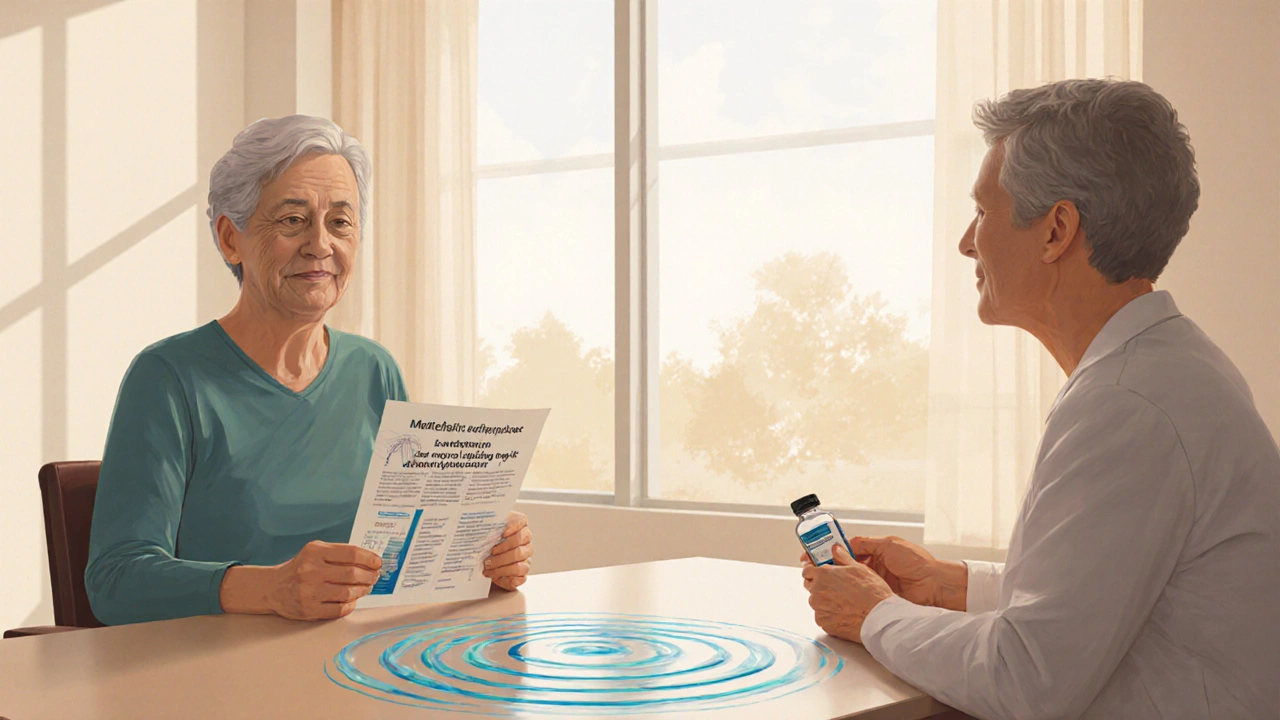Central Diabetes Insipidus Counseling: Your Quick Guide
Got a diagnosis of central diabetes insipidus (CDI) and feeling a bit lost? You’re not alone. CDI messes with your body’s water balance, making you pee a lot and feel thirsty all the time. That’s why many people turn to counseling – it’s a practical way to understand the condition, learn how to handle daily challenges, and stay on top of treatment.
Why Counseling Matters
First off, counseling isn’t just talk therapy. It’s a focused session where a health professional explains the science behind CDI, reviews medication options like desmopressin, and helps you set realistic goals. Knowing why you’re taking a certain dose or how timing affects your symptoms can boost confidence and reduce anxiety. Plus, a counselor can spot warning signs – like sudden weight loss or severe dehydration – before they become emergencies.
Key Topics Covered in CDI Counseling
During a typical counseling visit, you’ll cover several practical points. We’ll break them down so you know what to expect:
1. Understanding Hormone Levels – Learn how vasopressin (the hormone you’re missing) works and why supplementing it matters.
2. Medication Management – Get tips on dosing, storage, and what to do if you miss a dose. Counselors often share tricks like setting phone reminders.
3. Fluid Planning – Find out how much water you should drink each day, how to balance intake with output, and how to handle sweaty workouts or hot weather.
4. Lifestyle Adjustments – Discuss diet tweaks, bathroom access at work or school, and how to travel without panic.
5. Emotional Support – Talk about the stress of living with frequent bathroom trips and how to communicate your needs to family or coworkers.
Each of these topics is aimed at giving you clear, doable steps. For example, a simple fluid log can reveal patterns you didn’t notice, like extra drinks after a meal that spiked your urine output.
Another common question is about night-time symptoms. Counselors often suggest setting a bedtime alarm to use the bathroom before sleep, or adjusting medication timing to reduce nighttime urination.
When it comes to emergencies, know the signs of severe dehydration: dry mouth, dizziness, rapid heartbeat, or dark urine. A counselor will give you a quick action plan – usually call your doctor, sip small amounts of water, and avoid caffeine or alcohol, which can worsen fluid loss.
Most people find that regular check‑ins (every 3‑6 months) keep them on track. These appointments let you fine‑tune dosage, discuss new symptoms, and stay motivated. If you ever feel overwhelmed, remember that asking for help is a sign of strength, not weakness.
Bottom line: central diabetes insipidus counseling turns confusing medical jargon into everyday language you can use right now. It helps you control symptoms, avoid complications, and live a more comfortable life. So if you haven’t booked a session yet, give your doctor a call and ask for a referral. A little guidance today can save a lot of hassle tomorrow.

Counseling’s Impact on Managing Central Diabetes Insipidus
Explore how counseling, especially CBT and patient education, enhances medication adherence, reduces anxiety, and improves quality of life for those managing central diabetes insipidus.
view more